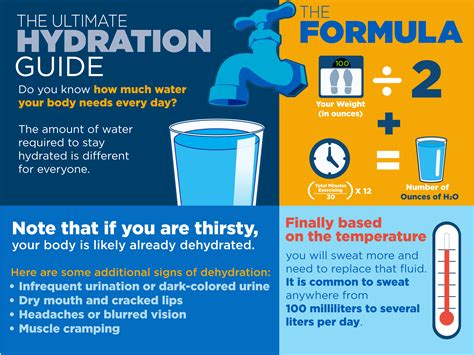Understanding Late Periods and Negative Pregnancy Tests
It is common for women to experience occasional delays in their menstrual cycles. However, when a period is four days late and a pregnancy test is negative, it can raise concerns and questions. In this article, we will explore the potential reasons behind this occurrence and provide guidance on understanding late periods and interpreting negative pregnancy test results.

Causes of Late Periods with Negative Pregnancy Tests
-
Fluctuating Hormone Levels: Slight variations in hormone levels, such as estrogen or progesterone, can affect ovulation and menstrual regularity. These fluctuations can cause periods to be early or late some months.
-
Stress: Excessive stress can disrupt the normal menstrual cycle. When the body experiences chronic stress, it produces cortisol, which can interfere with hormonal balance and delay ovulation.
-
Medications: Certain medications, including antidepressants, birth control pills, and thyroid medications, can have side effects that include delayed periods.
-
Medical Conditions: Underlying medical conditions, such as thyroid disorders, polycystic ovary syndrome (PCOS), or endometriosis, can affect menstrual regularity.
-
Recent Pregnancy: If you have recently been pregnant, your menstrual cycle may take some time to return to normal. It can take up to several months for ovulation and menstruation to resume after pregnancy.
-
Miscarriage: A recent miscarriage can cause irregular periods and negative pregnancy tests. After a miscarriage, hormone levels take time to regulate and the menstrual cycle may not resume immediately.
Interpreting Negative Pregnancy Test Results
Negative pregnancy tests can be accurate, but they are not 100% reliable. If you have a negative pregnancy test result but are still concerned about the possibility of pregnancy, consider the following:
-
False Negatives: Pregnancy tests can sometimes give false negative results, especially if taken too early or if the urine is diluted.
-
Ectopic Pregnancy: An ectopic pregnancy occurs when the fertilized egg implants outside the uterus. This can cause a negative pregnancy test, even though you are pregnant.
-
Chemical Pregnancy: A chemical pregnancy is a very early miscarriage that occurs shortly after conception. It can cause a positive pregnancy test result, which later turns negative as the pregnancy loss occurs.
When to Seek Medical Advice
If your period is more than seven days late and you have a negative pregnancy test, it is recommended to seek medical advice. This is particularly important if you have any of the following symptoms:
- Irregular or heavy bleeding
- Severe abdominal pain
- Fever or chills
- Signs of infection (foul-smelling discharge, itching)
Strategies for Understanding Late Periods
-
Keep a Menstrual Calendar: Tracking your menstrual cycle can help you identify patterns and determine if your period is typically late or irregular.
-
Consider Lifestyle Factors: Evaluate your stress levels, sleep habits, and diet. Changes in these areas can sometimes affect menstrual regularity.
-
Consult with a Healthcare Professional: If you are concerned about your late periods, do not hesitate to consult with your doctor or healthcare provider. They can perform a physical exam, discuss your medical history, and recommend further tests if necessary.
Common Mistakes to Avoid
-
Ignoring Pregnancy Symptoms: Even with a negative pregnancy test, do not ignore pregnancy symptoms such as nausea, breast tenderness, or fatigue.
-
Assuming a Miscarriage: Do not assume you have had a miscarriage based on a negative pregnancy test. Seek medical advice to confirm a miscarriage.
-
Repeating Pregnancy Tests Endlessly: Repeatedly taking pregnancy tests will not increase their accuracy. If you have a negative test result and are concerned, consult with a healthcare professional.
-
Panicking: While a late period can be stressful, try to avoid panicking. Most late periods are not a sign of a serious problem.
Conclusion
A period that is four days late with a negative pregnancy test can be a frustrating experience. However, it is important to understand the potential causes of late periods and to interpret negative pregnancy test results accurately. If you have concerns about your menstrual cycle or are experiencing any pregnancy symptoms, do not hesitate to seek medical advice. Remember, there are many possible explanations for late periods, and the majority of them are not a cause for concern.
Tables
Table 1: Common Causes of Late Periods with Negative Pregnancy Tests
| Cause | Description |
|---|---|
| Fluctuating Hormone Levels | Variations in estrogen or progesterone levels |
| Stress | Excessive stress can disrupt the menstrual cycle |
| Medications | Certain medications can have side effects that include delayed periods |
| Medical Conditions | Thyroid disorders, PCOS, endometriosis |
| Recent Pregnancy | It can take several months for ovulation and menstruation to resume after pregnancy |
| Miscarriage | A recent miscarriage can cause irregular periods and negative pregnancy tests |
Table 2: Interpreting Negative Pregnancy Test Results
| Result | Possible Explanation |
|---|---|
| Negative | Not pregnant |
| False Negative | Pregnancy too early to detect, diluted urine |
| Ectopic Pregnancy | Pregnancy outside the uterus |
| Chemical Pregnancy | Early miscarriage |
Table 3: Strategies for Understanding Late Periods
| Strategy | Description |
|---|---|
| Menstrual Calendar | Track your menstrual cycle to identify patterns and irregularities |
| Lifestyle Evaluation | Consider stress levels, sleep habits, and diet |
| Medical Consultation | Discuss your symptoms and medical history with a healthcare professional |
Table 4: Common Mistakes to Avoid
| Mistake | Explanation |
|---|---|
| Ignoring Pregnancy Symptoms | Do not ignore symptoms such as nausea or fatigue |
| Assuming a Miscarriage | Seek medical confirmation of a miscarriage |
| Repeating Pregnancy Tests Excessively | Repeated tests will not increase accuracy |
| Panicking | Try to avoid unnecessary stress |
















